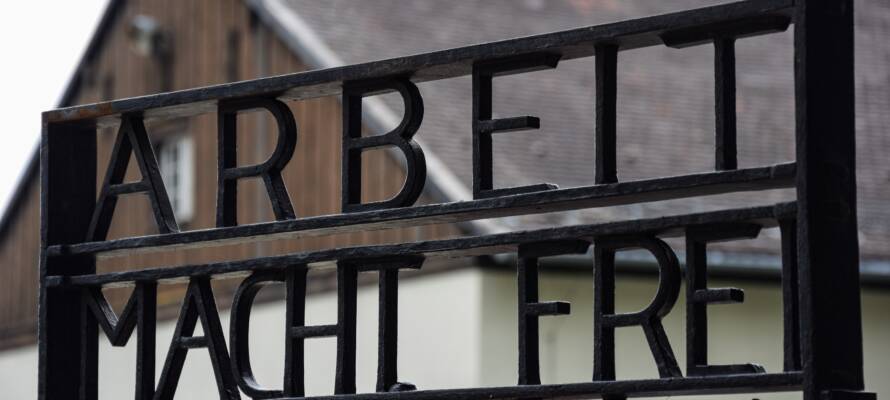Dachau is half an hour’s drive from Munich’s football stadium, where Euro 2024 began on Friday.
By The Algemeiner and Reuters
Fans from Scotland, Ukraine, Germany, Israel and other nations laid wreaths at the Dachau Concentration Camp Memorial Site on Saturday to commemorate victims of the Nazis, vowing “never again” and to use football as a force to unite people.
The group toured the camp and heard how the Nazis had persecuted Jewish footballers and coaches, forced prisoners to play soccer for propaganda before banning it, then allowed only some inmates to play under the camp’s hierarchy of privileges for different categories of prisoner.
Fans also heard the children of former camp victims tell their parents’ stories, walked in procession with a Scottish bagpiper.
Dachau is half an hour’s drive from Munich’s football stadium, where Euro 2024 began on Friday. It was one of the first concentration camps to be set up by the Nazis, weeks after Adolf Hitler took power in January, 1933.
“It is a somber place. You walk in and it is an uncomfortable feeling. But I think this sort of service is important to remember what happened, to make sure we learn from mistakes… it has opened our minds to a lot of things,” said Cole Cattanach, 21, a Scottish student from Falkirk, travelling through Germany to support the Scotland team.
Andreas Erbel, representing German football fans, said he came to the commemoration to help protect democracy.
“I wanted to show that there is also a counterweight to the move to the right across Europe, that there are more people… who are open to the world.”
“During Euro 2024 many people will come to us in Germany and it is a chance for us to live out this togetherness.”
In the 12 years before its liberation by American soldiers in 1945, over 200,000 people were imprisoned at Dachau, among them the Jewish president of Bayern Munich soccer club Kurt Landauer.
At least 41,500 died in the camp and its satellite sites.
Saturday’s event comes amid Germany’s nationwide “Football and Remembrance” program for Euro 2024, looking at how the Nazis murdered athletes and used soccer for their own ends, with tours at historical sites close to the host cities.

Soccer Football – Euro 2024 – Germany stages ‘Football and Remembrance’ program – Dachau concentration camp, Dachau, Germany – June 15, 2024 A bagpipe player with Scotland fans during the ceremony. Photo: REUTERS/Angelika Warmuth
FOOTBALL AT DACHAU
The Nazi SS guards had photos taken in 1933 showing prisoners playing football at Dachau, most likely to try and deceive the outside world that inmates were well treated.
Football was then banned at the camp until 1943, when the Nazis needed to use the fittest prisoners for munitions manufacturing, and so allowed the sport as a perk. However, Jewish prisoners, at the very bottom in the Nazi’s racist hierarchy of prisoners, were excluded.
The football pitch on sandy ground was by the camp’s roll call square.
“What we know from survivor accounts is that you could always notice the smell of burning bodies in the air, you saw the perimeter fence, and the emaciated prisoners. These were football games under extreme conditions,” said Maximilian Luetgens, a historian at Dachau who is leading the historical tours.
On display is a wooden football trophy, carved in 1944 by a prisoner for a tournament between teams of inmates. It was won by a group of political prisoners from Luxembourg.
Visitors can also see a poster designed by prisoners, showing two players, framed by barbed wire and with the triangle badges worn by inmates from Poland, the Czech Republic and Luxembourg.
“This work is so important, because there is unfortunately an increase in racism in European football, and there are racist, antisemitic and homophobic chants,” said Luetgens.
Bernd Neuendorf, President of Germany’s Football Association wrote in an introduction to the Football and Remembrance program, “People from all continents will come to us to peacefully celebrate and support their teams… Nevertheless, we also want to use this tournament to remember the dark sides of German history and reflect for a moment.”
